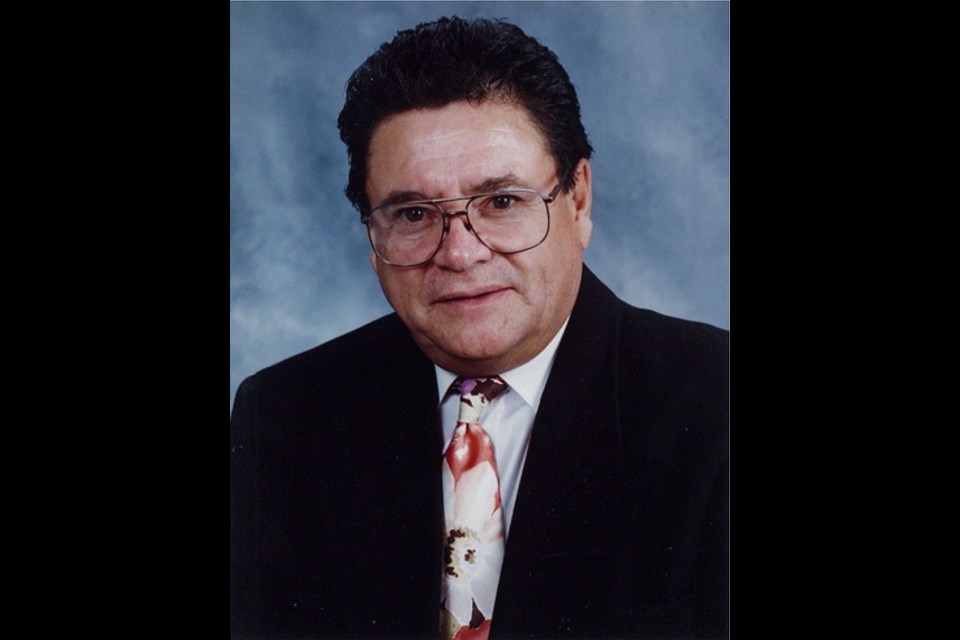The second person to ever represent the Thompson electoral district in the Manitoba legislature died in April and is remembered by one of his children and a former colleague as a self-taught man who was passionate about improving the economic position of Indigenous people.
Ken Dillen, who was elected as Thompson MLA in 1973, succeeding Jopesh Borowski, and served only a single term, died April 20 at 81 years old at Serpent River Indian Reservation in Cutler, Ontario, the same community where he was born.
Dillen captured the seat to represent Thompson in the legislature as a member of the NDP party by defeating former Thompson city councillor and Progressive Conservative candidate Anna Denby by fewer than 300 votes. Four years later, he lost by 916 votes to Ken MacMaster, who became the first PC MLA for Thompson and also served only a single term before losing to the NDP’s Steve Ashton in 1981.
“I think he looked back on [his time as Thompson MLA] very positively,” said Dillen’s daughter Deborah Collingridge. “I think he felt that he had done a lot of good. i think it was disappointing to him that he lost the election, that he was only able to serve four years. I think he was hoping to be re-elected and do more in his community.”
A former paratrooper with the Canadian Armed Forces, Dillen came to Thompson with his family in the late 1960s and was elected president of United Steelworkers Local 6166 for one term in 1969 before going to work for the provincial government’s Northern Manpower Corps in 1972 and getting elected to the legislature the following year.
Thanks to his Indigenous roots, Dillen was well-suited to represent the Thompson area in the legislature and bridge the divide between the provincial government in Winnipeg and constituents in Northern Manitoba communities.
“He was one of those people who had learned how to work in Indigenous and Euro-Canadian culture effectively,” says Les Johnson, who was a senior provincial bureaucrat when Dillen was elected as MLA and went on to work with him in consulting ventures following the end of Dillen’s political career. “He was a practical guy that people trusted almost immediately because he talked about things that were important to the people and he could often suggest answers.”
Dillen took a hand-on approach with programs aimed at improving food security for Northern Manitobans, Johnson recalls.
“He started little pig farms all over the north and he carried the breeding stock north and then a professor at the University of Manitoba decided that vegetables could be grown in the north in what were called tunnel gardens,” said Johnson. “Ken put 40 of those in 40 communities throughout the north and some of those tunnel gardens just got wiped out about a decade ago.”
In his post-political life, Dillen worked together with Johnson on the Key Lake uranium mine commission in northern Saskatchewan.
“He was given the job of communicating with all the Indigenous communities,” said Johnson “Out of that came a transportation company based in La Ronge. It’s an Indigenous company and they transport all uranium ore in Saskatchewan. He not only caused people to be employed but he caused the creation of an institution which is still operating.”
Dillen would go on to be a founding member of the Saskatchewan Association of Taxpayers and secretary for the Prairie Centre Policy Institute, a Conservative think tank in Saskatchewan, but never again held elected public office, though he did run for the Manitoba Liberals in Thompson in the 2011 provincial election.
Collingridge says she is amazed by all the things her father managed to do with only an eighth grade education, thanks largely to his passion for reading.
“He was never without a book,’ she said. “My dad was not one to sit around unless he had a book in his hand.”
He also wasn’t one to talk about retirement.
“I think he really didn’t like the idea,” she said.
At the time of his death, Dillen was working as consultant for Voltage Power in Northern Ontario.
“He had a trailer he was going to pull up to one of the lakes and that’s where he was going to live this summer.” said Johnson, who saw Dillen just a few weeks prior to his death and had a conversation with him three days before he died.
“We were talking about how we would bring this sense of economic or social justice to the north and how difficult it was going to be,” said Johnson.
“My dad just couldn’t stay put,” said Collingridge. “He was always working and always busy and I think he really loved that.”




